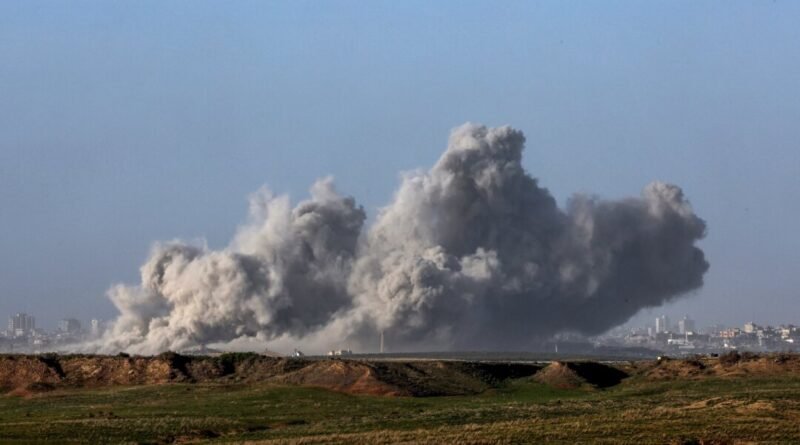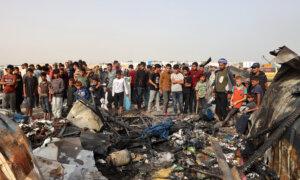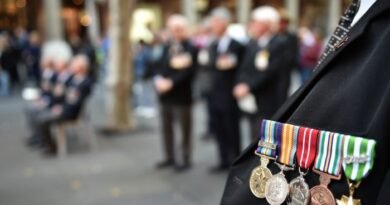IDF Spokesman: Possibility that Israeli Bomb Caused Secondary Blasts Injuring Civilians in Rafah
An Israeli military spokesman has publicly stated that secondary explosions, not the initial Israeli bomb blast, may have caused civilian injuries and deaths following a strike in Rafah on Sunday night.
Israeli Prime Minister Benjamin Netanyahu referred to civilian deaths after a May 26 Israeli airstrike in Rafah as a “tragic mistake” and assured that the Israeli government would investigate the incident further. Israeli officials are currently reviewing the strike.
During a press conference on Tuesday, Israel Defense Forces (IDF) spokesman Rear Adm. Daniel Hagari suggested that Israeli authorities are examining the theory that the Israeli strike triggered a secondary explosion from explosive materials near the intended target, resulting in deadly explosions and fires in a nearby civilian tent encampment.
Rear Adm. Hagari restated the Israeli military’s claim that the Sunday strike “eliminated senior Hamas terrorists in a targeted strike” and emphasized that the targeted structure only housed Hamas members and was based on precise intelligence assessments.
“Despite our efforts to minimize civilian casualties during the strike, the ensuing fire was unexpected and unintended,” the Israeli military spokesman added.
Rear Adm. Hagari mentioned that the munition used in the Sunday strike contained approximately 17 kilograms (37 pounds) of explosives and was unlikely to have caused the large fire seen after the strike. He stated that Israeli forces are exploring all possibilities, including the scenario that weapons stored near the target may have ignited due to the strike.
The military spokesman reiterated the rationale for the Israeli strike and its precision, showing an image of a suspected rocket launcher located 43 meters from the structure targeted by Israeli aircraft in the May 26 operation.
“We are reviewing footage captured by Gazans on the night of the strike, posted on social media, which suggest secondary explosions, indicating the presence of weapons in the area,” Rear Adm. Hagari elaborated.
The Israeli military spokesman also presented an audio clip in Arabic, purportedly of two Gazans discussing the Sunday strike. The English translation provided describes one individual mentioning a small bomb launched by the Israeli military that led to multiple secondary explosions. The authenticity of this audio clip has not been independently verified.
While emphasizing that the Israeli munition used on Sunday was unlikely to have caused all the destruction witnessed that night, Rear Adm. Hagari proposed that the initial Israeli airstrike triggered secondary explosions. He noted that the investigation into the May 26 strike is ongoing, and no final conclusion has been reached.
“Even if we determine the cause of the fire, it does not diminish the tragic nature of this situation,” he remarked.
Although the Israeli government maintains that civilian casualties from the strike were accidental and potentially due to the ignition of an unknown weapons cache, the strike occurred shortly after the International Criminal Court (ICC) ordered the Israeli military to immediately cease its military operations in the Rafah Governorate.
Mr. Netanyahu expressed condolences for the civilian fatalities resulting from the May 26 strike but also stated on Monday that his government would not yield to pressure, both domestic and international, in its mission to eliminate Hamas.
“I will not surrender. I will not end the war until we achieve all our objectives,” Mr. Netanyahu affirmed.





